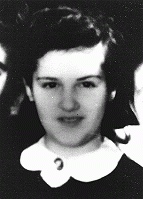You searched for: 点赞分享赚钱系统定制开发【TG���������@EK7676】平台包网搭建点赞分享赚钱系统定制开发【TG���������@EK7676】平台包网搭建45lYiA56c7
<< Previous | Displaying results 101-110 of 136 for "点赞分享赚钱系统定制开发【TG���������@EK7676】平台包网搭建点赞分享赚钱系统定制开发【TG���������@EK7676】平台包网搭建45lYiA56c7" | Next >>
-
Klara Mintzberg
ID CardKlara grew up in Rzeszow, a Polish city with a population of approximately 30,000. The Mintzbergs were observant Jews. Klara's mother supported the family by running their fabric store. Her father was an ardent Zionist. He dreamed of immigrating to Palestine and encouraged Klara to join a Zionist youth group. 1933-39: After finishing secondary school, Klara was elected to serve on the board of directors of Poland's Ha-No'ar Ha-Ziyoni youth movement; she was the only woman on the board. She studied…
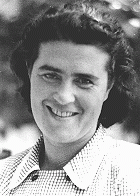
-
Barbara Nemeth Balint
ID CardBarbara was born to a middle-class Jewish family in southeast Hungary. Her father had a store that carried grocery and hardware items. Barbara had a sister named Margit and a brother named Desider. In 1928 Barbara married Istvan Geroe and moved to the town of Torokszentmiklos. Her son, Janos, was born there a year later. 1933-39: In 1933 Barbara divorced and returned with 3-year-old Janos to her parents' home in the town of Szentes. She helped run her parents' store, which was located on a busy inter-city…
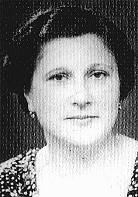
-
Janos Geroe
ID CardJanos was the only child born to a Jewish family in the small agricultural city of Torokszentmiklos, about 65 miles southeast of Budapest. His father, who had a degree in pharmacology, joined his family's grain exporting business. 1933-39: In 1933, when Janos was 4 years old, his parents divorced. According to Hungarian law, Janos was to live with his mother until he was 7 and then return to his father. Janos moved with his mother to her hometown of Szentes, where he began studying at a religious primary…
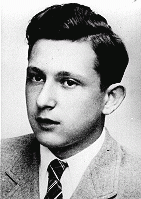
-
Mirjam Waterman Pinkhof
ID CardMirjam grew up on her family's farm in Loosdrecht. Her parents, secular Jews, had moved from Amsterdam in 1914, two years before she was born. The Watermans were pacifists. Mirjam attended a progressive school in Hilversum. Her brother and youngest sister attended the Kees Boeke School, a progressive school located in Bilthoven that taught pacifist and humanistic ideals. 1933-39: In 1938 Mirjam began teaching at the Kees Boeke school. A group of German-Jewish refugees came to the school in 1939. Mirjam…
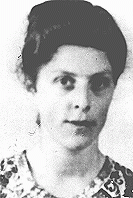
-
Guta Blass Weintraub
ID CardGuta was born to a Jewish family in the Polish city of Lodz, the nation's second-largest city and the center of its textile industry. Her father, a successful businessman, owned a clothing factory, which produced uniforms for the Polish army. Guta attended a private Jewish school in Lodz. 1933-39: On September 1, 1939, not long after Guta began secondary school, the Germans invaded Poland. Polish soldiers moved quickly through Lodz to defend the border, but a few days later, after being beaten, they came…
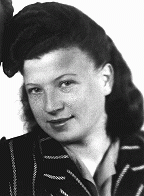
-
Fred Bachner
ID CardFred was born to a Jewish family in the German capital. Berlin's Jewish community was large--approximately 170,000 by 1933--and the city was the seat of most of Germany's national Jewish organizations. Fred's family owned a successful clothing factory. He attended a Jewish public school in Berlin. 1933-39: In 1938 the Germans began deporting Polish citizens. Both Fred's parents were Polish by birth, but only his father and brother were sent to Poland. Fred and his mother remained in Berlin until their…
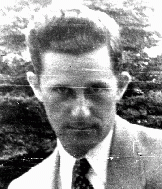
-
Jehuda Gerszonowicz
ID CardThe third of eight children, Jehuda was born in the predominantly Jewish town of Wodzislaw, about 45 miles north of Krakow. Jehuda's father was a mechanic and locksmith, and had trained Jehuda and his brothers in the trade. Jehuda eventually opened his own shop in the nearby town of Miechow. He had eight children--five sons and three daughters--by two marriages. 1933-39: All this summer Jehuda has been glued to the radio, as the number of skirmishes between the German and Polish border guards have…
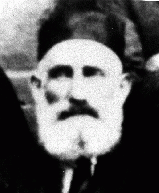
-
Jolan (Cipi) Katz
ID CardThe oldest of eight children, Jolan grew up in a religious Jewish family. She was usually known by her Yiddish nickname, Cipi. After Jolan was born, her parents moved the family to Kisvarda, a town in northeastern Hungary. There she grew up with her four sisters and one surviving brother. Jolan had finished her schooling by 1933. 1933-39: Hitler was popular in Kisvarda. Jolan's mother wanted the family to leave Hungary before the situation worsened, but her father, who had been to the United States…
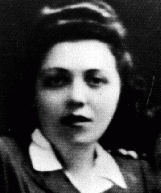
-
Dosia Szabszevicz
ID CardDosia, her older sister and parents lived on her grandfather's estate in the town of Ozorkow, eight miles from Lodz. Dosia's parents were secular Jews. They spoke both Polish and Yiddish to each other, but only Polish to their children. Dosia's father worked as an accountant, and her mother was active in organizing charity events for several of Ozorkow's Jewish organizations. 1933-39: A few days after Germany invaded Poland in 1939, Dosia saw the Polish army retreat through Ozorkow, carrying their wounded…
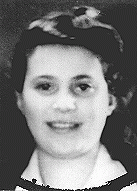
-
Genya Rotenberg
ID CardGenya and her brother, Nahum, were raised by Jewish parents in Lodz, Poland's second-largest city and an industrial center. Before the war, one-third of Lodz's inhabitants were Jewish. Genya's parents placed emphasis on their children's education. 1933-39: In 1939, when Genya was 9, the Germans occupied Lodz. After that, it was forbidden for "Jews, Gypsies and dogs" to be in public places. Since Jews weren't allowed to go to school, her parents arranged to tutor her secretly at home, but she couldn't keep…
